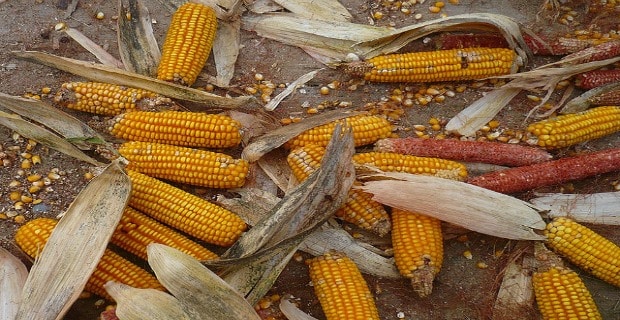
This past weekend I had the opportunity to hear Jeffrey Smith from the Institute for Responsible Technology speak. The first thing he announced was that Russia banned the imports of GMOs. As you can imagine, he was very happy to see that Russia is taking a stand against genetically modified (GMO) foods., as was I. Russia’s Prime Minister Dmitry Medvedev told a congress of deputies on Saturday that the country will no longer import GMO products, according to U.S. based Russian news site, rt.com.
“If the Americans like to eat GMO products, let them eat it then,” said Medvedev. “We don’t need to do that; we have enough space and opportunities to produce organic food.”
Read more about the effects of GMOs
Back in February the head of Russia’s Ministry of Agriculture Nikolay Fyodorov declared at the All-Russian Meeting of Agrarians that no GMOs will be in his country’s food production. The same month, Russian legislators asked the government to temporarily ban all GMO products in Russia, reports rt.com. A temporary ban is supported by the Agriculture Ministry. The Deputy Agriculture Minister Aleksandr Petrikov said to the parliament committee that his ministry is in favor of introducing harsher punishment for illegally growing and using GMO cultures. Although there are currently no restrictions on the production of GMO food products in Russia, when the percentage of GMO is greater than 0.9 percent a label must be placed on the product.
Apparently, Russia strictly monitors the food it imports. Russian news services, RIA Novosti reported last week that the country’s food safety agency, Rosselkhoznadzor would ban the importation of frozen beef from Australia because samples tested positive for trenbolone, a growth steroid banned by Russian import law. The ban will start on April 7. "We can no longer accept guarantees from our Australian colleagues," Alexei Alekseyenko, an aide to Rosselkhoznadzor's head.
In 2012, Russia temporarily suspended the use or importation of Monsanto’s corn in response to the findings of a French research study on linked the corn to cancer in rats.
Russian president Vladmir Putin himself is opposed to GMOs. While addressing the members of the Board of the Russian Federation Council he said: “We need to properly construct our work so that it is not contrary to our obligations under the WTO. But even with this in mind, we nevertheless have legitimate methods and instruments to protect our own market, and above all citizens.”
Meanwhile, the majority of U.S. corn, soybeans, canola, and beets are GMO. No federal labeling law exists to inform consumers that a food product is GMO. However, several states have passed GMO labeling laws.
Image: Dricker94




